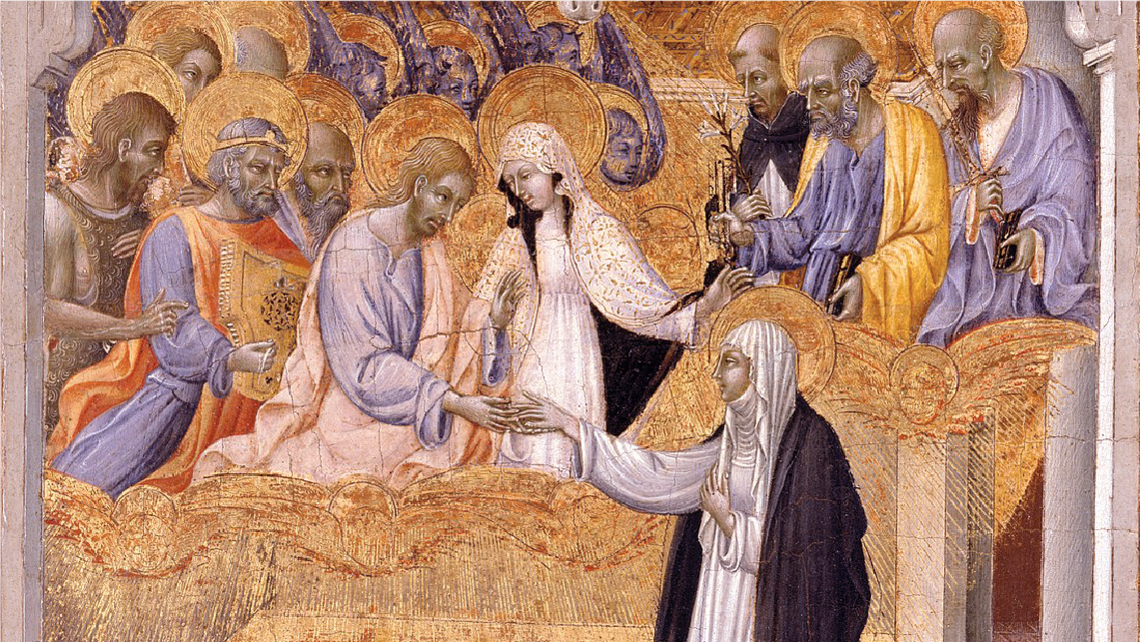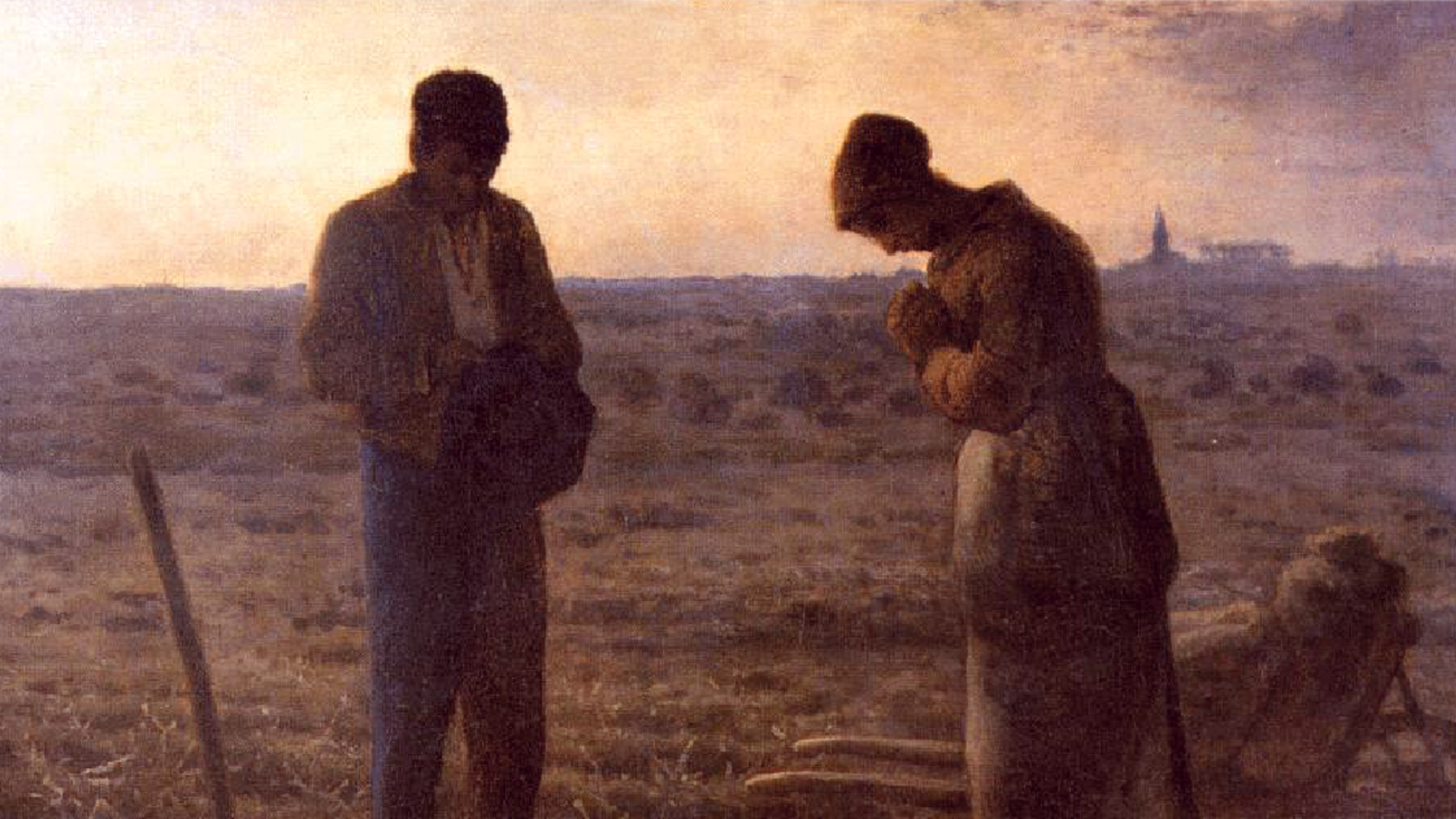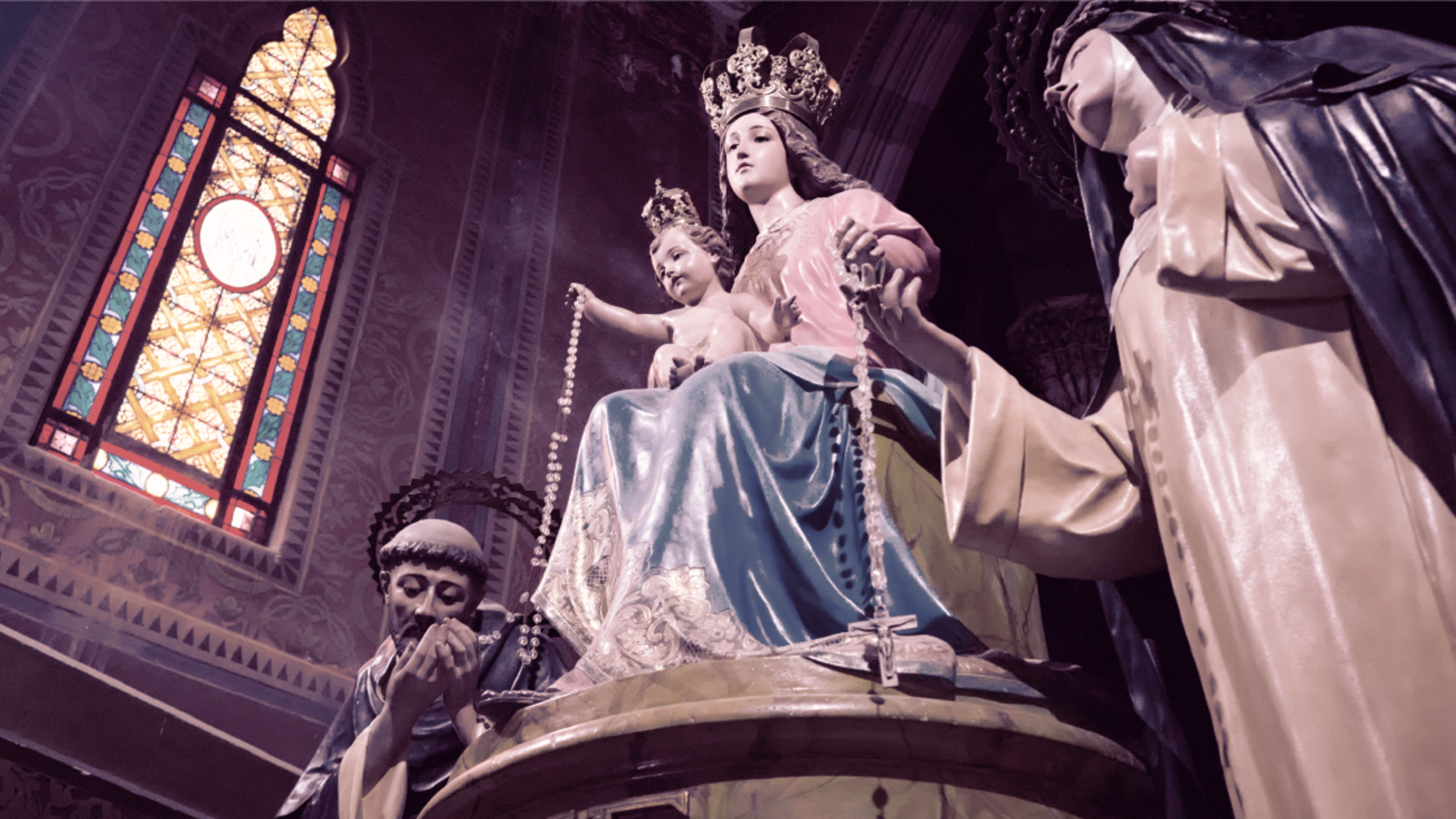
In her wonderful little children’s book about the life of Saint Catherine of Siena, author Mary Fabyan Windeatt writes, “We all know [Saint Catherine] is a great saint, not because she had visions and wonderful favors from God, but because she was not afraid to do whatever God asked of her.”
We have so much to learn from the saints, but the lessons aren’t necessarily what we’d expect. In his General Audience of November 24, 2010, Pope Benedict XVI reflected on the life, the teachings, and the impact Saint Catherine had—not only upon Italy, but upon us all.
Here are five lessons we can take away from the life of Saint Catherine:
- Saints give us a “jolt.” In his reflections, Pope Benedict said, “Even in the most difficult times, the Lord does not cease to bless His People, bringing forth Saints who give a jolt to minds and hearts, provoking conversion and renewal. This jolt ‘impels us to walk courageously toward holiness, to be ever more fully disciples of the Lord.’”
People followed Catherine wherever she went, sensing that she was very special. Sinners came to her as well, and in fact several priests often followed her around to hear the confessions of all those who listened to Catherine speak of God’s love for them and urge them to repent.
- Saints are rooted in the basics. Pope Benedict said of Saint Catherine that she “dedicated herself to prayer, penance, and works of charity.”
For the saints, greatness is rooted in the Works of Mercy. In Matthew 5:16, Jesus says, “Just so, your light must shine before others, that they may see your good deeds and glorify your heavenly Father.”
People were drawn to Catherine because of the prayerful, humble, loving, and sacrificial way in which she conducted herself on a daily basis. As she was dying, Catherine confessed that she felt as if she had failed in her mission to bring about world peace — but she had certainly not failed at the most important thing, which is loving God and carrying out His desires.
We are not asked to be the smartest, the strongest, the fastest, the wealthiest, or the most popular. Instead, we are asked to be loving, compassionate, faithful, and trusting in our Lord.
- Saints embrace suffering. Catherine begged our Lord that she might suffer for those people who would not say prayers or do penance for their sins. And the Lord allowed it.
In fact, He even pierced her hands, feet, and side in the same way Jesus’ wounds were inflicted during his passion. Nobody except Catherine could see these wounds — yet, she carried them for the rest of her life.
Often, our own suffering is not visible on the outside; those around us are unaware of our anguish. Like Catherine, we are called to offer our suffering to God, for the conversion of sinners and the salvation of souls.
- Saints don’t have to be brilliant or prolific. As a child, Catherine learned to read only with great difficulty, and she didn’t learn to write until she was an adult.
Her body of writing is quite small, consisting only of her Dialogue, a collection of Letters, and a small handful of prayers.
As a child of six, Catherine’s only wish was to become a hermit; to live alone in a cave so that she might think of the Lord always without distraction. (Thankfully, the Lord convinced her to return home to become His servant among her own family members and in her little community.)
She did not dream of wealth, fame, intelligence, or beauty. All she wanted to do in life was love and serve the Lord.
- Saints are totally focused on God’s love. Pope Benedict XVI reminds us, “Like [St. Catherine], every believer feels the need to be conformed with the sentiments of the heart of Christ to love God and his Neighbor as Christ himself loves.”
When we love like Jesus loves, we accept, forgive, withhold judgement, offer support, and give hope.
Matthew 25:38-40 says, “Then the righteous will answer him and say, ‘Lord, when did we see you hungry and feed you, or thirsty and give you drink? When did we see you a stranger and welcome you, or naked and clothe you? When did we see you ill or in prison, and visit you?’ And the king will say to them in reply, ‘Amen, I say to you, whatever you did for one of these least brothers of mine, you did for me.'"
Catherine focused her whole heart upon serving those in her family, her community, and eventually, her country.
Like most saints, Catherine of Siena wasn’t striving for greatness; she was simply trying to live a life that would honor our heavenly Father. As Easter approaches, let us pray to Saint Catherine that we might follow in her footsteps, humbling ourselves and focusing on how we can best serve our family, our community, and our Lord.
References:
Mary Fabyan Windeatt, Saint Catherine of Siena: The Story of the Girl Who Saw Saints in the Sky, (TAN Books), 1993.



